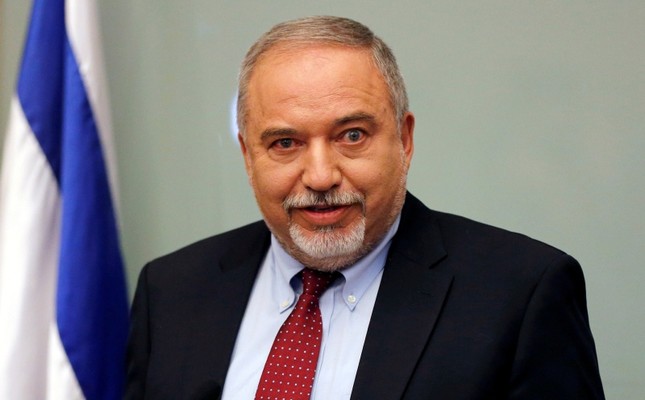Yisrael Beiteinu party leader Avigdor Lieberman announced his resignation from Israel’s governing coalition on Wednesday, citing the ceasefire agreement with Hamas as a betrayal of his principles.
“I’m here to announce my resignation as defense minister for the State of Israel,” Lieberman said at a press conference.
“The question is why now. As far as I’m concerned, what happened yesterday, the ceasefire yesterday, with the negotiations with Hamas, amounts to a capitulation to terrorism. There’s no other way to describe it. It has no other meaning, it is simply a capitulation to terror.”
Lieberman chose the most opportune moment to quite the coalition, positioning himself as more hawkish than Prime Minister Binyamin Netanyahu (Likud) at a time when Israeli nationalists – those most likely to vote for Likud, Yisrael Beiteinu or Bayit Yehudi – feel frustrated over the ceasefire.
Citing the unpopular ceasefire as his reason for quitting the coalition is a blatantly political move aimed at increasing Yisrael Beiteinu’s appeal among Israelis on the right.
With its mostly Russian-speaking base integrating more successfully into Israeli society, Yisrael Beiteinu likely hopes to attract new voters by posing as tougher than Likud on security issues.
Following Lieberman’s resignation, the Bayit Yehudi faction demanded the defense portfolio for party leader Naftali Bennett in order “to change security policy and bring initiative and deterrence back to Israel.”
The party issued a statement, saying that “without taking responsibility over the national mission of changing the security situation together with the prime minister, there is no point in the continued existence of the government.”
Prime Minister Netanyahu has so far not met with Bennett or expressed a desire to continue with the coalition in its present form.
Netanyahu did, however, meet with Deputy Minister Yaakov Litzman and MK Moshe Gafni of the United Torah Judaism faction, as well as Finance Minister Moshe Kaḥlon (Kulanu).
The prime minister reportedly told his coalition partners that he is not interested in early elections but discussed with them the possibility of holding national elections in early spring 2019.





